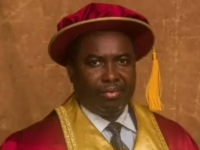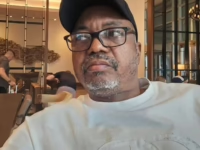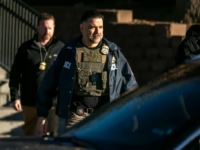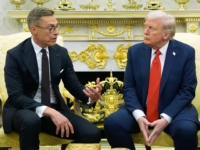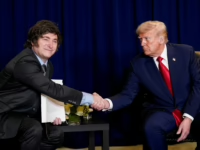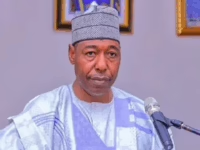Washington, DC, United States – Following the announcement of the ceasefire agreement in Gaza, Hamas briefly commended U.S. President Donald Trump and urged him to ensure Israel adheres to the terms of the pact moving forward.
Trump has taken credit for what he described as a “historic” ceasefire achievement, with both Israeli and Palestinian parties acknowledging his involvement in brokering the deal.
Despite the announcement, many details remain unclear, and given Israeli Prime Minister Benjamin Netanyahu’s history of resuming hostilities after previous truces, experts emphasize that Trump’s active engagement is crucial to securing a lasting peace.
“The United States must guarantee this is not just a temporary pause that Netanyahu dismantles for political reasons,” stated Nancy Okail, director of the Center for International Policy (CIP). “Only persistent American pressure can ensure a comprehensive and enduring end to the conflict.”
Critics argue that Israel has increasingly operated outside international norms, frequently violating ceasefire agreements with Lebanon and disengagement accords with Syria, alongside ongoing military actions in Gaza that contravene international humanitarian law.
Earlier this year, Netanyahu’s administration unilaterally terminated a previous Gaza truce, further complicating prospects for peace.
Trump is widely regarded as the key guarantor of the current ceasefire, having been the first to announce the agreement late Wednesday. The deal is reportedly based on a 20-point framework he proposed last week.
“We have ended the conflict in Gaza and, on a broader scale, established peace that I hope will endure,” Trump declared on Thursday.
U.S. Guarantees
Hamas’s lead negotiator, Khalil al-Hayya, expressed optimism that the Israeli military campaign in Gaza is concluding.
“We have received confirmations from our allied mediators and the U.S. administration that the war is fully over,” he stated in a video message.
However, some Israeli officials have already voiced reservations about fully committing to the ceasefire’s terms.
Finance Minister Bezalel Smotrich emphasized Israel’s duty to “continue striving with all available means to completely dismantle Hamas” once the hostages are freed.
Israel’s military operations heavily rely on U.S. support, with Washington providing over $21 billion in direct military aid over the past two years.
Trump and most of his senior foreign policy team are known for their strong pro-Israel stance, raising concerns about potential biases in enforcing the ceasefire.
Consequently, analysts warn that fears of Israel undermining the truce after the release of captives are justified.
Yousef Munayyer, head of the Palestine/Israel program at the Arab Center Washington DC, described Trump as the “linchpin” of the agreement, insisting he must hold Netanyahu accountable to maintain peace.
“This deal depends on a convicted felon persuading an indicted war criminal to act responsibly,” Munayyer remarked, referring to Trump and Netanyahu. “Skepticism is entirely warranted.”
Uncertain Future
The exact terms of the ceasefire remain somewhat ambiguous. Trump announced an initial phase involving the release of all Israeli captives held in Gaza in exchange for hundreds of Palestinian detainees in Israel.
What unfolds beyond this initial step is still uncertain.
Earlier this year, hostilities resumed after the expiration of a 60-day ceasefire’s first phase, leading to a renewed Israeli offensive and blockade of Gaza.
Munayyer pointed out that Trump’s primary concern has been the fate of the Israeli hostages.
“Whenever questioned about the humanitarian crisis and suffering in Gaza, Trump consistently redirects attention to the captives, highlighting his role in securing the release of some Israelis during the January-March truce,” Munayyer told Al Jazeera.
“He has shown little public empathy for the Palestinian population’s hardships. His focus remains squarely on the Israeli detainees.”
This front-loaded approach to the deal raises concerns about whether Trump will remain engaged in ensuring the ceasefire’s full implementation, including reconstruction efforts and humanitarian aid access.
On Thursday, Trump reiterated that freeing the hostages is his top priority and stopped short of committing to a permanent end to the conflict.
When asked if there are guarantees that Hamas would disarm and Israel would refrain from further attacks, Trump responded, “Our first priority is getting our hostages back … After that, we’ll see.”
Shifts in U.S. Policy
Okail from CIP emphasized that the only sustainable way to disarm Hamas is by addressing the fundamental causes of the conflict, namely the Israeli occupation.
“True resolution lies in Palestinian self-determination,” she explained.
She urged the U.S. to maintain firm pressure to prevent Israel from reigniting hostilities while also tackling broader issues such as ongoing occupation and settlement expansion.
Without these measures, Okail warned, “this agreement will be as fragile as those before it.”
The White House’s 20-point Gaza plan, unveiled last month, acknowledges Palestinian aspirations for statehood but stops short of affirming their right to it outright.
The plan suggests that discussions on Palestinian statehood could proceed only after the Palestinian Authority implements reforms demanded by the U.S.
“As Gaza’s redevelopment progresses and the PA’s reform agenda is faithfully executed, conditions may emerge for a credible path toward Palestinian self-determination and statehood, which we recognize as the Palestinian people’s aspiration,” the document states.
This tentative language marks a departure from Netanyahu’s firm stance against the establishment of a Palestinian state.
Although Trump and Netanyahu share a close personal relationship, Okail noted that Israel’s recent strikes on Qatar-which sparked widespread international and regional condemnation-prompted a recalibration in Washington.
“The backlash revealed the limits of unconditional U.S. support for Israel, especially since it posed a political risk to Trump, who has cultivated positive ties with Qatar,” she told Al Jazeera.
Bottom line: Can Trump be relied upon to enforce the ceasefire?
“Trump’s motivation is primarily to avoid political fallout from the war, so trusting him is more about trusting his self-interest than genuine commitment,” Okail concluded.





